Ebreo-cristiano
-
The Language of the Lord
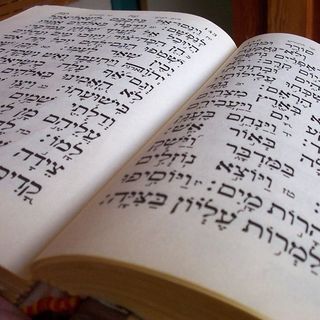
Ulpan programs - the modern Hebrew language schools - are known to be a hub of diversity, predominantly filled with new immigrants, Arab Israelis looking to learn Hebrew and Jewish students spending a semester abroad. But ulpan teachers say that in recent years, they have seen a remarkable influx of priests and priests-in-training being sent to ulpan programs officially by their seminaries.
-
The Legacy of Judaism
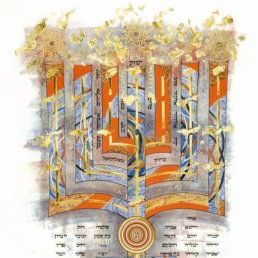 "The Chosen People, the Jews, teach us through the divine revelation of the living God that humility of heart is what is required to truly and more deeply encounter the living God. They knew the way of Christ before He was born."
"The Chosen People, the Jews, teach us through the divine revelation of the living God that humility of heart is what is required to truly and more deeply encounter the living God. They knew the way of Christ before He was born." -
The Palestinian Kairos Document: An Analysis
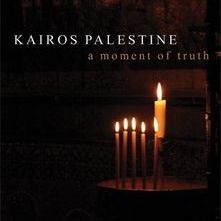 The self-styled “Kairos Palestine” document was launched in Bethlehem on December 11,2009 by a panel chaired by the former Latin Patriarch of Jerusalem,Michel Sabbah. The document is meant to mobilize churches worldwide in a program of boycotts, divestment and delegitimization directed at the State of Israel.
The self-styled “Kairos Palestine” document was launched in Bethlehem on December 11,2009 by a panel chaired by the former Latin Patriarch of Jerusalem,Michel Sabbah. The document is meant to mobilize churches worldwide in a program of boycotts, divestment and delegitimization directed at the State of Israel. -
Theological Questions and Perspectives in Jewish-Catholic Dialogue
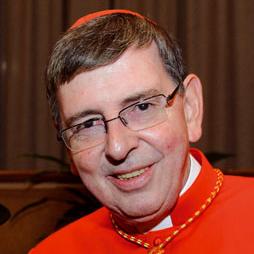 The history of relations between Christians and Jews represents a very complex history which alternates between proximity and distance, between fraternity and estrangement, between love and hate. On the one hand, Jesus cannot be understood without Judaism; on the other hand, the schism between synagogue and church forms the first split in the history of the church,
The history of relations between Christians and Jews represents a very complex history which alternates between proximity and distance, between fraternity and estrangement, between love and hate. On the one hand, Jesus cannot be understood without Judaism; on the other hand, the schism between synagogue and church forms the first split in the history of the church, -
Tisha b'Av and the God who Suffers
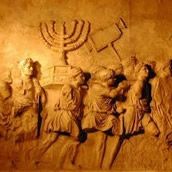 This coming Saturday night begins the fast of Tisha b'av on which we mourn the destruction of both the first and second Temples. According to the midrash, the messiah was born on Tisha b’av, when the first Temple, the Temple of Solomon, was destroyed. Something happened when the Temple was destroyed that kicked off the final redemption.
This coming Saturday night begins the fast of Tisha b'av on which we mourn the destruction of both the first and second Temples. According to the midrash, the messiah was born on Tisha b’av, when the first Temple, the Temple of Solomon, was destroyed. Something happened when the Temple was destroyed that kicked off the final redemption. -
USCCB on Covenant and Mission
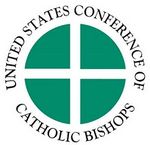 A statement clarifying two points of Catholic teaching relative to the Jewish community was released June 18, 2009, at the spring meeting of the United States Conference of Catholic Bishops (USCCB). A Note on Ambiguities Contained in Covenant and Mission was jointly issued by the Committee on Doctrine and Pastoral Practice and the Committee on Ecumenical and Interreligious Affairs.
A statement clarifying two points of Catholic teaching relative to the Jewish community was released June 18, 2009, at the spring meeting of the United States Conference of Catholic Bishops (USCCB). A Note on Ambiguities Contained in Covenant and Mission was jointly issued by the Committee on Doctrine and Pastoral Practice and the Committee on Ecumenical and Interreligious Affairs. -
Vatican Note on Bishop Williamson
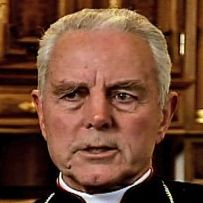 Following the reactions aroused by the recent Decree of the Congregation for Bishops, with which the excommunication of the four Bishops of the Fraternity of Saint Pius X was remitted, and in relation to the negationist and reductionist declarations concerning the Shoah on the part of Bishop Williamson of the same Fraternity, it is held opportune to clarify certain aspects of the matter.
Following the reactions aroused by the recent Decree of the Congregation for Bishops, with which the excommunication of the four Bishops of the Fraternity of Saint Pius X was remitted, and in relation to the negationist and reductionist declarations concerning the Shoah on the part of Bishop Williamson of the same Fraternity, it is held opportune to clarify certain aspects of the matter. -
We Have Been Obstinate
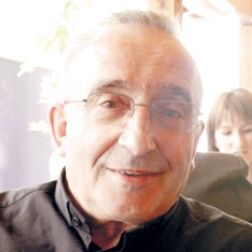 The term 'a stiff-necked people,' used to describe the Jews' betrayal of God on Mt. Sinai, has been erroneously applied throughout history; but in one case, at least, it is sadly apt.
The term 'a stiff-necked people,' used to describe the Jews' betrayal of God on Mt. Sinai, has been erroneously applied throughout history; but in one case, at least, it is sadly apt. -
We Remember: A Reflection on the Shoah
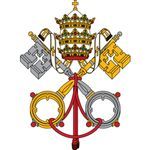
"At the end of this Millennium the Catholic Church desires to express her deep sorrow for the failures of her sons and daughters in every age. This is an act of repentance (teshuva), since, as members of the Church, we are linked to the sins as well as the merits of all her children."
-
What is Dual-Covenant Theology?
 Dual-covenant theology is a theological error teaching that since God's covenant with the Jews is still valid for them, they don't need Jesus or the New Covenant to be saved. Jews could go to Heaven simply by keeping the Law of Moses, because of the "everlasting covenant" between Abraham and God (Gen 17:13), whereas Gentiles (non-Jews) must convert to Christianity to be saved.
Dual-covenant theology is a theological error teaching that since God's covenant with the Jews is still valid for them, they don't need Jesus or the New Covenant to be saved. Jews could go to Heaven simply by keeping the Law of Moses, because of the "everlasting covenant" between Abraham and God (Gen 17:13), whereas Gentiles (non-Jews) must convert to Christianity to be saved. -
What is Replacement Theology?
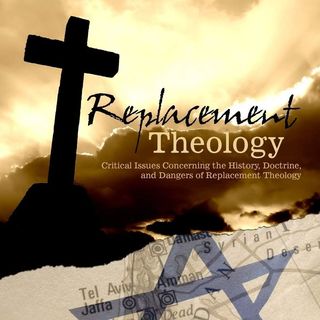 Replacement theology (or supersessionism) is the idea that the Christian Church has "replaced" Israel (or the Jewish people) in God's plan of salvation as His chosen people. In its simplest expression, replacement theology could be expressed as follows: "The Jews have rejected Christ; therefore God has rejected the Jews and the Church is now the 'New Israel.'"
Replacement theology (or supersessionism) is the idea that the Christian Church has "replaced" Israel (or the Jewish people) in God's plan of salvation as His chosen people. In its simplest expression, replacement theology could be expressed as follows: "The Jews have rejected Christ; therefore God has rejected the Jews and the Church is now the 'New Israel.'" -
Who Are You Israel, My Brother?
 Every time that I am asked to speak about Israel - and this happens often - I feel at first overwhelmed by the greatness and complexity of the subject. And so I simply try with my listeners to look at Israel, the Israel of yesterday, of today, and that of the hope of tomorrow.
Every time that I am asked to speak about Israel - and this happens often - I feel at first overwhelmed by the greatness and complexity of the subject. And so I simply try with my listeners to look at Israel, the Israel of yesterday, of today, and that of the hope of tomorrow. -
Why Catholics for Israel?
 Why is there a need for an apostolate of Catholics for Israel? What are some of the current challenges and problems in the Church and in the world that Catholics for Israel hopes to address?
Why is there a need for an apostolate of Catholics for Israel? What are some of the current challenges and problems in the Church and in the world that Catholics for Israel hopes to address? -
Why Don't (Most) Jews Believe in Jesus?
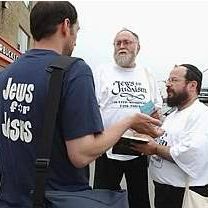 I have recently returned to Jerusalem after an absence of seven months abroad. During this time, I had many conversations with Catholic friends about Judaism. To many of them it seems incredible that most Jews still "don't get it" that the Messiah has come. The present reflection is addressed to Christians who wish to better understand the rationale for the Jewish rejection of Jesus and of the Church and wish to try to see the perspective from the "other side."
I have recently returned to Jerusalem after an absence of seven months abroad. During this time, I had many conversations with Catholic friends about Judaism. To many of them it seems incredible that most Jews still "don't get it" that the Messiah has come. The present reflection is addressed to Christians who wish to better understand the rationale for the Jewish rejection of Jesus and of the Church and wish to try to see the perspective from the "other side." -
Why the Catholic Jew Rejoices on Passover
 Why should the Jew who has been saved by Jesus celebrate his redemption from Egypt? What meaning could the statement in the Haggadah that we should regard ourselves as having participated personally in the Exodus, possibly have for him? What can the redemption from Egypt give him that he has not already received through the Cross?
Why should the Jew who has been saved by Jesus celebrate his redemption from Egypt? What meaning could the statement in the Haggadah that we should regard ourselves as having participated personally in the Exodus, possibly have for him? What can the redemption from Egypt give him that he has not already received through the Cross? -
Zionism for Christians
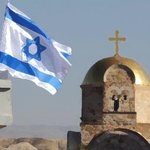 The People of God of the flesh stand surety for the People of God in the spirit, not only as witnesses to scriptural promise but as the living root of the Church. As Christians see it, God taught the idea of a People of God through the Jews, and the Jews' continuing existence is both a perpetual reminder of that lesson and a guarantee that God keeps his promises.
The People of God of the flesh stand surety for the People of God in the spirit, not only as witnesses to scriptural promise but as the living root of the Church. As Christians see it, God taught the idea of a People of God through the Jews, and the Jews' continuing existence is both a perpetual reminder of that lesson and a guarantee that God keeps his promises.
Pagina 3 di 3
